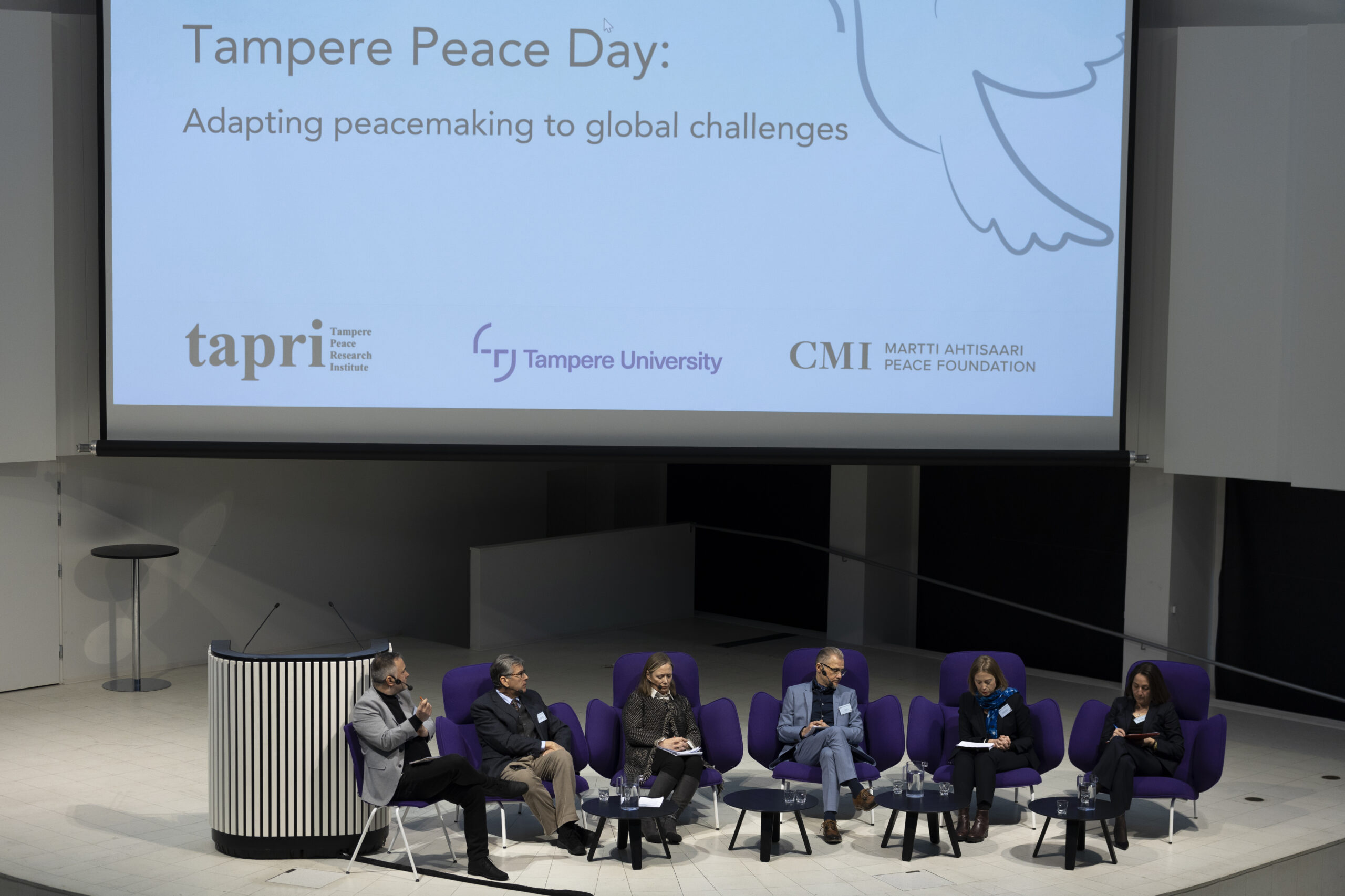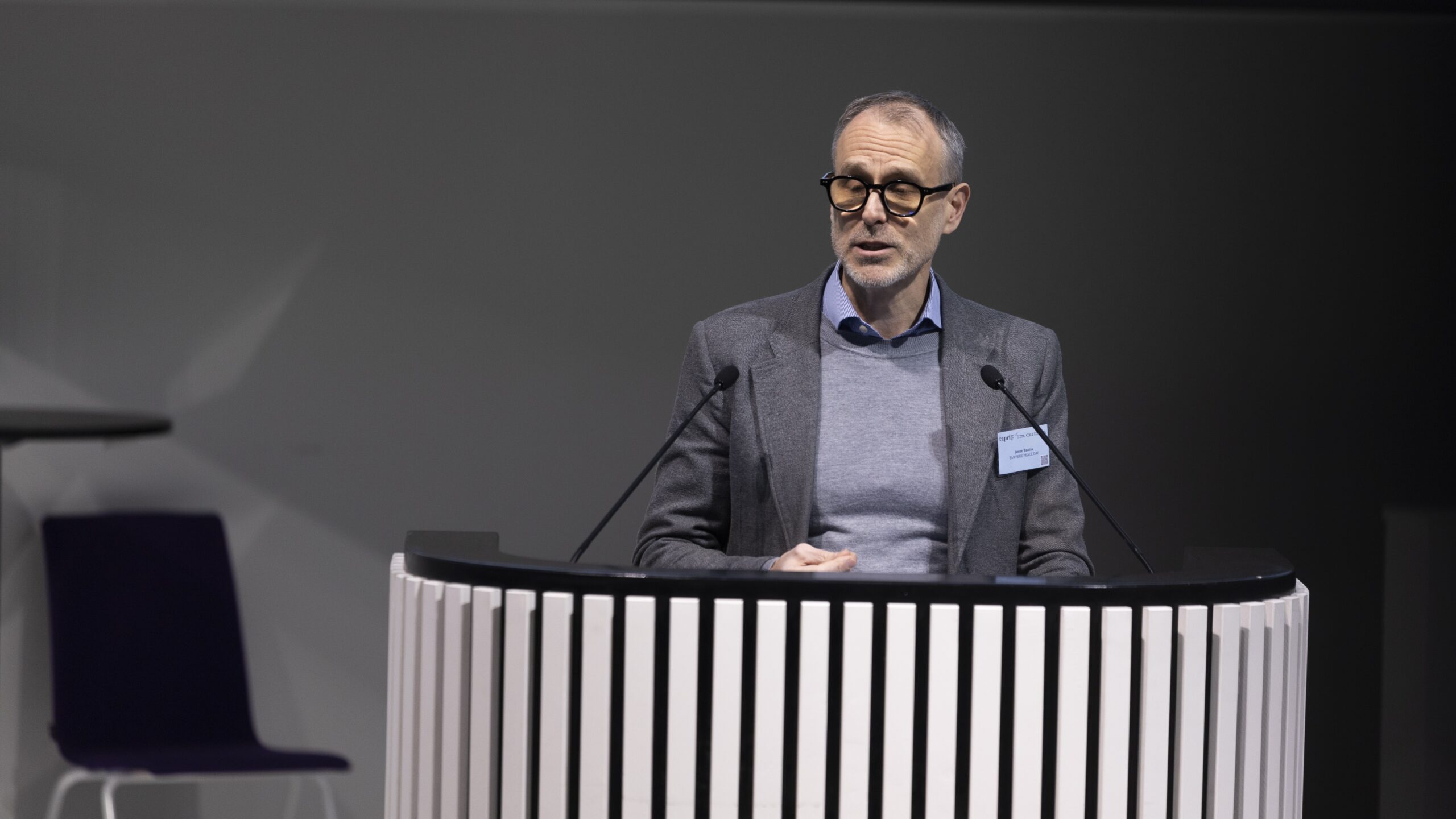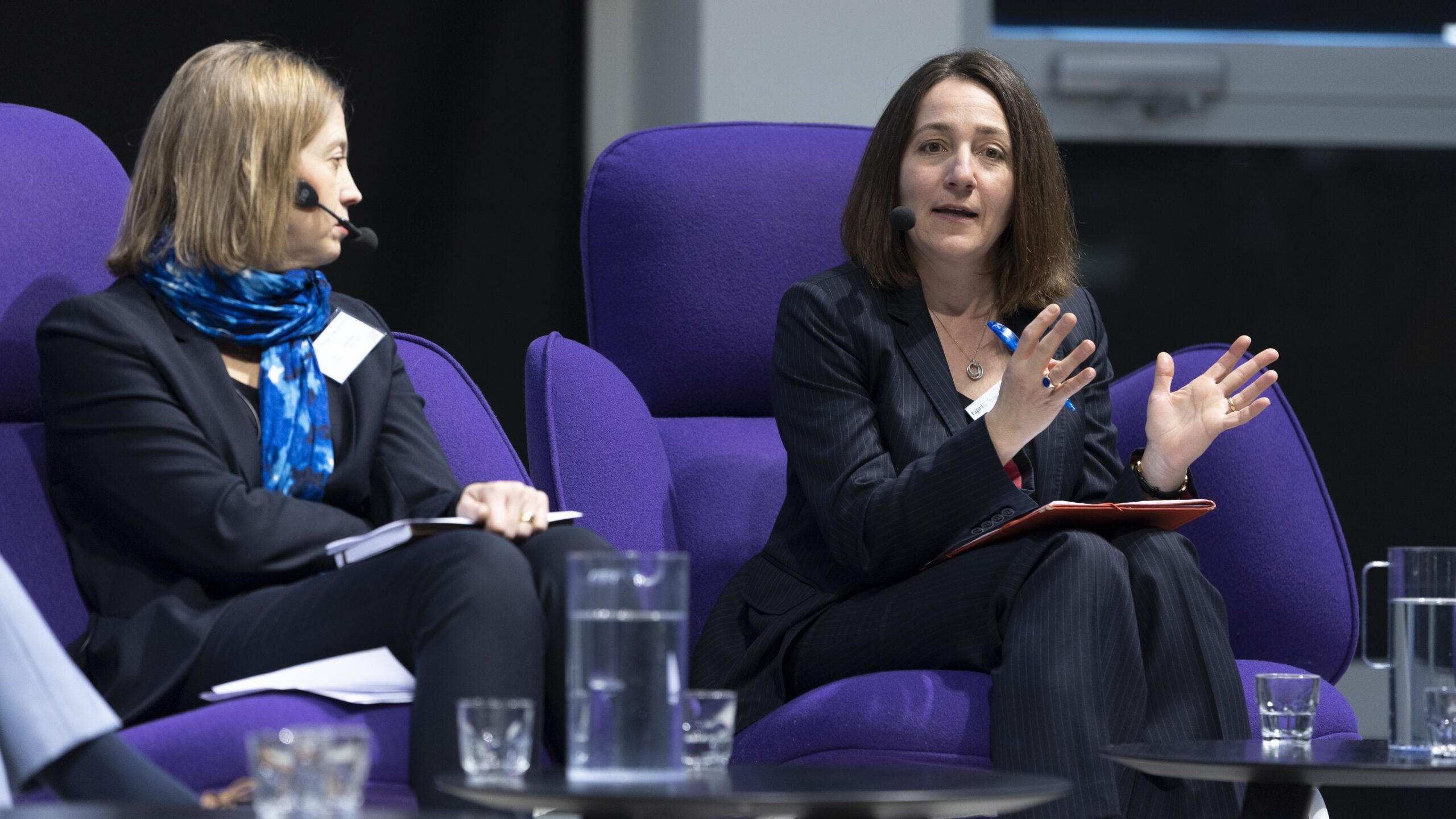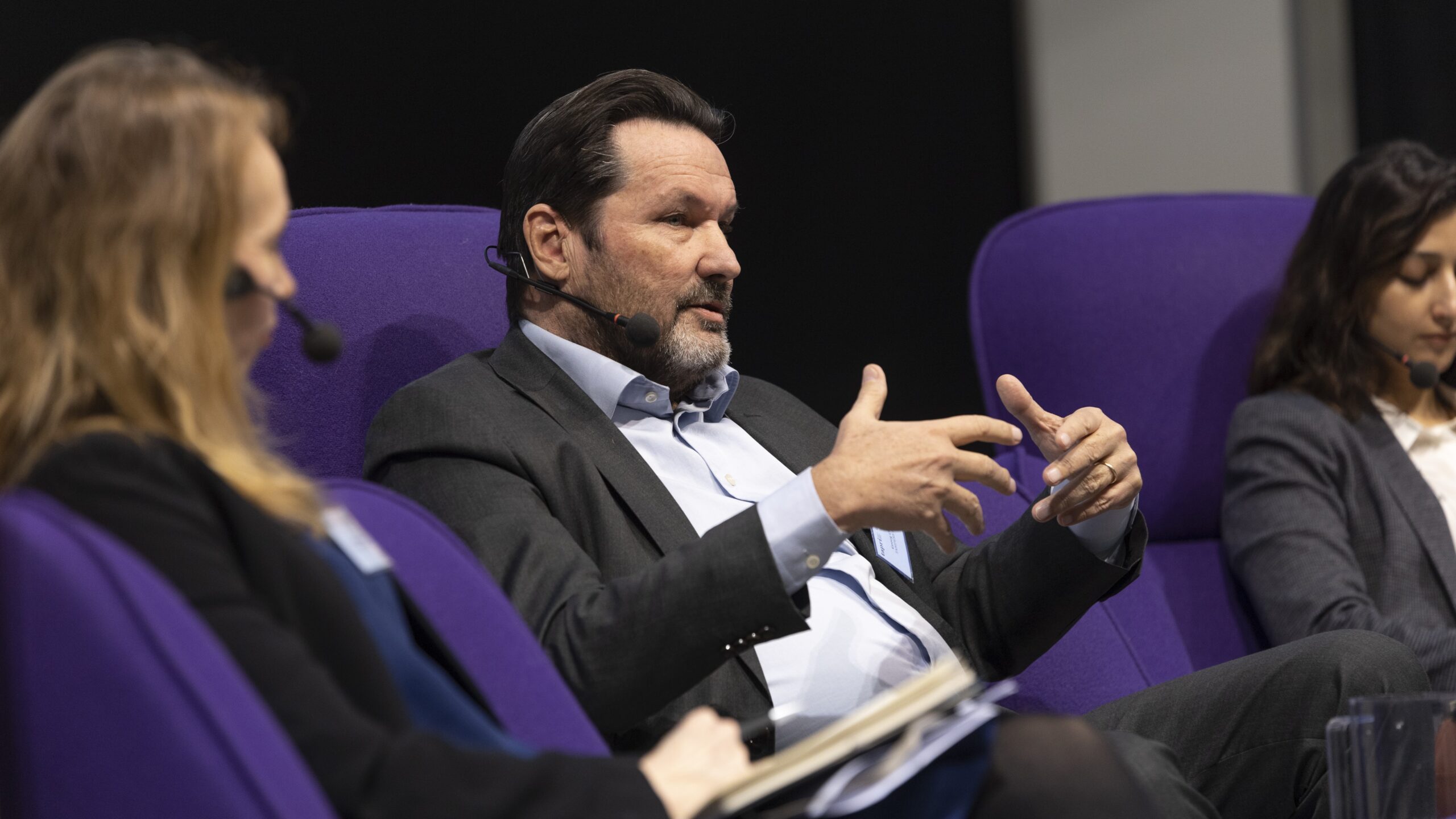Tampere Peace Day: how should peacemakers adapt to a turbulent world?

Photo: Maria Santto / CMI
Researchers and practitioners convened in frosty Tampere to share their insights on peacebuilding and its challenges.
How should peacemakers adapt to a new world where the space for peacemaking has narrowed? The question permeated Tampere Peace Day, a new conference jointly organized on 27 November, 2023, by CMI and Tampere Peace Research Institute.
In his opening remarks, Janne Taalas, Chief Executive Officer of CMI, noted the prevalent idea that peace is endangered. The world is witnessing a global upsurge of war, with more military conflicts than any time since the Cold War. Sudan, Myanmar and Ethiopia are illustrative examples. “Something is pushing peace into the margins,” said Taalas.

“Something is pushing peace into the margins,” said Janne Taalas, CEO of CMI. Photo: Maria Santto / CMI
In this new environment, talking about peace could be considered defeatist, naïve or even stupid. “Gaza is a case in point,” Taalas added. Peacemakers need new solutions on how to better mobilize and react to the uptick in violent conflict, but also on ways to discuss peace.
In her keynote address on peacebuilding in turbulent times, Professor Sarah von Billerbeck from the University of Reading outlined the obstacles facing contemporary peacebuilding. These fall into issues of inclusion, information and the crisis of multilateralism.
Von Billerbeck suggested addressing challenges around inclusion by influencing elite bargains, which often concentrate on those who already hold power. On information-related problems, she called for advocacy on social media and AI, with a specific focus on peacebuilding. On multilateralism, investments should be made to help multilateral institutions adapt to new challenges.

Professor Sarah von Billerbeck outlined the obstacles facing contemporary peacebuilding. Photo: Maria Santto / CMI
During a panel discussion on challenges to traditional approaches to peacemaking, CMI’s Nina Suomalainen suggested that some issues might arise from the EU having “lost its shine” in terms of lack of commitment and incentives to join the union, as well as rising Euroscepticism.
Three breakout sessions discussed feminist approaches to peacebuilding, inclusive peacemaking in interstate conflict and the green transition’s implications for peace. The sessions were followed by a panel on adapting peacemaking to diverse global realities.
Tarja Väyrynen, Professor of Peace and Conflict Research at TAPRI, identified several weak signals in peacebuilding: integration of the climate crisis, increasing intersectional understanding, and the inclusion of different knowledge practices into the field.

CMI’s Georg Charpentier explained why conflict parties are gravitating towards new mediation actors. Photo: Maria Santto / CMI
CMI’s Georg Charpentier explained why conflict parties are gravitating towards new mediation actors: traditional great powers and institutions like the UN are simply not trusted, which leads to more interest in countries like Qatar or China or independent actors like CMI. More investments should be made in understanding the way these trusted intermediaries view conflicts.
Despite the record number of violent conflicts and shrinking space for peacemaking, CMI’s Deputy CEO Hanna Klinge struck an optimistic note, reminding the audience that the discussed challenges could also be seen as opportunities.